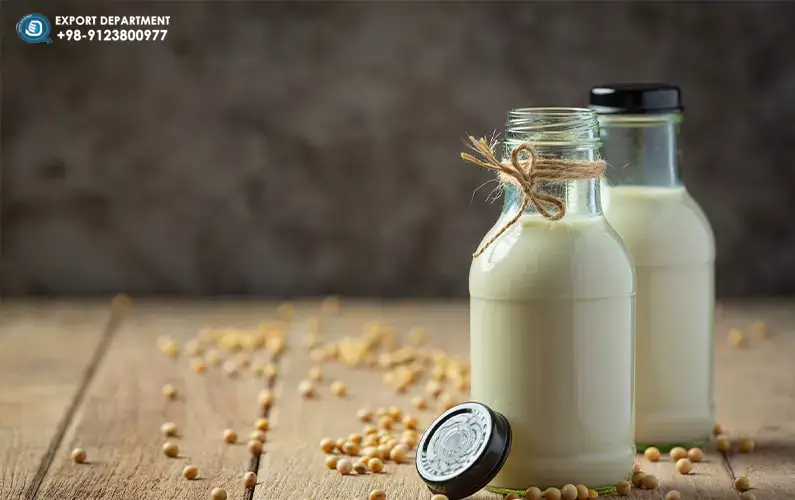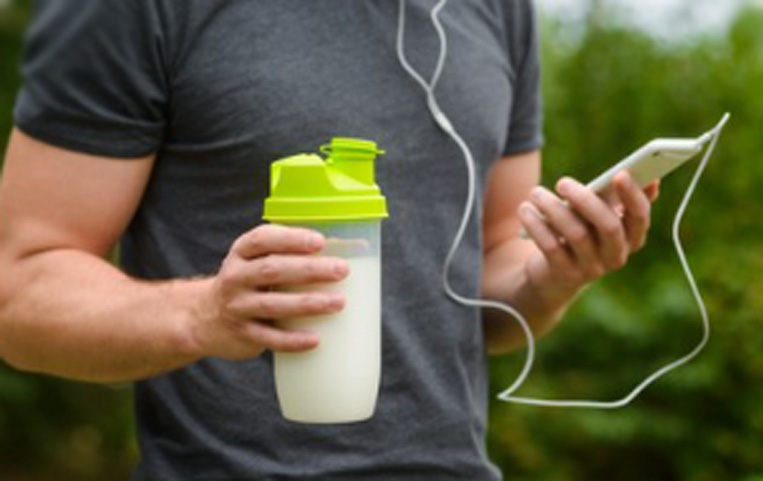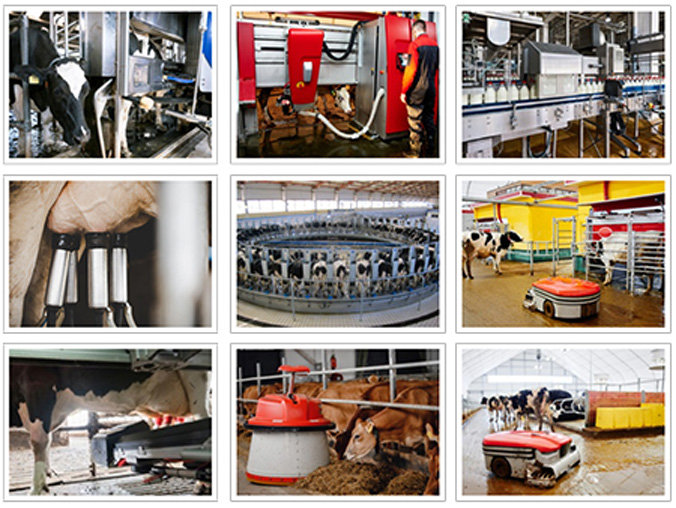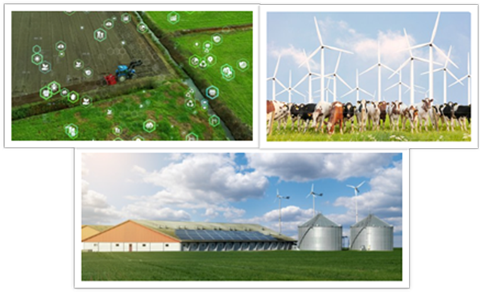
Beyond Tradition: Exploring the Cutting-Edge of Dairy Innovations
Welcome to a journey through the realm of dairy product innovations! Here, we delve into the latest advancements in the dairy industry that have revolutionized the way we produce, consume, and enjoy dairy products. Our team at Export Department, an expert in the dairy sector, is thrilled to present you with cutting-edge insights.
The Unstoppable Rise of Dairy Innovations
In recent years, the dairy industry has witnessed an unprecedented surge in innovation, driven by advancements in technology, consumer demands, and sustainability goals. Today, dairy products go beyond the traditional milk, butter, and cheese offerings. They have evolved into a diverse range of dairy delights that cater to a broad spectrum of tastes, preferences, and dietary requirements. From catering to nutritional needs to prioritizing sustainability, the dairy sector continuously evolves to meet the dynamic demands and preferences of consumers worldwide. Here, we delve into some innovations that are driving the future of dairy products.

Plant-Based Alternatives
As environmental consciousness and dietary preferences gain momentum, the demand for plant-based dairy alternatives has surged. Forward-thinking companies now offer a diverse array of dairy-free products derived from almonds, soy, coconut, oats, and more. These plant-based alternatives artfully replicate the taste and texture of traditional dairy products, providing consumers with cruelty-free and eco-friendly choices without compromising on flavor.
This year, major players in the dairy industry have ventured into the market of plant-based dairy. For example, Nestlé has recently launched Wunda, a product made from yellow peas, aimed at addressing taste concerns associated with plant-based milk.
.jpg)
Fortified Dairy Products
Nutritional fortification stands as a key trend in the dairy industry. In response to specific dietary requirements and addressing nutritional deficiencies, dairy products are fortified with essential vitamins, minerals, and probiotics. Fortified milk may feature added vitamin D and calcium to promote bone health, while yogurt can be enriched with live and active cultures to support gut health.

Clean Label Products
Consumers have grown increasingly conscious about the contents of their food. The rise of clean-label dairy products signifies a growing preference for simple and natural ingredients, free from artificial additives or preservatives. This trend aligns with the shift towards wholesome and minimally processed foods, reflecting a growing desire for cleaner and more transparent dairy options.
For instance, Nestle took action by rebranding Dreyer's and Edy's Slow Churned ice creams, eliminating artificial colors and flavors, high fructose corn syrup, and GMO ingredients. They also shortened the ingredient list to just eight elements and sourced milk from cows that were not treated with growth hormones. These steps demonstrate their commitment to offering a cleaner and more wholesome product to consumers.
.jpg)
High-Protein Dairy
Driven by the surging interest in health and fitness, high-protein dairy products have gained popularity among consumers. Innovative dairy manufacturers have crafted protein-rich milk, yogurt, and cheese, catering to the protein needs of active individuals and health-conscious consumers. These products are esteemed for their nutritional benefits and versatility in various recipes.
Sustainable Practices in the Dairy Industry
The dairy industry is actively committed to implementing sustainable initiatives, recognizing its role in reducing the environmental impact of food production. Dairy companies are undertaking several measures to achieve this goal. For instance, they are adopting eco-friendly packaging materials and implementing energy-efficient production methods, thus contributing to a more sustainable food supply chain.
Furthermore, some progressive dairy farms are pioneering regenerative agriculture techniques. These practices not only promote soil health but also play a crucial role in curtailing greenhouse gas emissions. By adopting regenerative agriculture, dairy farmers are taking a proactive approach to address their contribution to the global greenhouse gas (GHG) emissions from the food industry, which currently stands at 35%.
.jpg)
One area of focus for the dairy industry is the reduction of methane emissions, particularly from ruminant animals. To address this challenge, dairy companies are exploring a variety of approaches. They are investing in the development of innovative methods to produce sustainable feed, which can potentially help mitigate methane production in cattle. Additionally, collaborations with specialized companies that excel in methane capture technology are being forged to tackle this issue effectively.
Arla and Valio are among the companies that have established objectives to attain sustainable packaging.
Smart Packaging and Traceability
Advancements in technology have paved the way for smart packaging solutions in the dairy sector. Smart packaging is equipped with sensors and indicators to monitor product freshness, quality, and safety. Additionally, traceability technologies, like blockchain, provide consumers with transparent information about the journey and origin of dairy products - from farm to table.
.jpg)
Flavored Dairy Ingredients
Flavoring is a crucial factor in food products, and the dairy industry has not overlooked this aspect. Innovations in dairy ingredients have led to the development of flavored milk powders and cheese powders. These additives enhance the taste profile of a variety of products, including snack foods, sauces, and dressings, further elevating culinary experiences.
Reduced-Lactose Dairy Ingredients
Considering that many individuals experience lactose intolerance and have difficulty digesting lactose, dairy manufacturers have responded with reduced-lactose dairy ingredients. Products such as lactose-free milk and reduced-lactose cheese have been introduced to meet this demand, offering lactose-intolerant consumers a wider range of dairy options.
Dairy-Based Sports and Nutrition
Sports drinks have long been tailored for athletes as an alternative to water, providing a boost in energy and hydration. However, conventional sports drinks often contain artificial ingredients and high levels of sugar, causing health concerns among consumers. Consequently, dairy companies are increasingly exploring sugar reduction and alternative options in this domain.
Milk, with its rich nutritional profile encompassing carbohydrates, electrolytes, calcium, vitamin D, and essential proteins like casein and whey, perfectly aligns with the needs of athletes for post-exercise rehydration and muscle recovery. While the concept of using milk as a rehydration drink after exercise is not new, recent times have witnessed remarkable innovations in this area due to heightened consumer focus on health.

A notable innovation is GoodSport Nutrition's shelf-stable hydration beverage, incorporating dairy permeate. In 2019, GoodSport filed a patent application for this groundbreaking product. A couple of years later, they received the prestigious 2021 Breakthrough Award for Dairy Ingredient Innovation in the "innovative milk-derived or whey-derived dairy ingredient products" category. GoodSport's product, harnessing the nutrient-rich milk permeates, offers three times the electrolytes and 33% less sugar than traditional sports drinks, making it a nutritious and healthier choice for sports nutrition.
Lab-Based Dairy
Beyond plant-based alternatives, lab-based fermented dairy products are creating a buzz in the industry. Companies like Eden Brew have developed cow-free milk using yeast, which produces the casein protein found in cow's milk. This innovative product has no lactose, no cholesterol, and does not cause allergies. Although the lab-based dairy segment is still relatively unfamiliar to many consumers in Western countries, its unique nutritional profile and potential health benefits make it an intriguing addition to the dairy industry.
Infant Nutrition
Growing awareness of children's health and the importance of the first 1000 days of early nutrition in infants has led to a demand for nutrition products. Hence, dairy players are constantly innovating in the baby formula space to be in the spotlight and catch hold of consumer sentiments in some way or another.
BiomilkQ, a startup located in North Carolina, utilizes human mammary cells to culture milk, creating a product that closely resembles breast milk, surpassing the composition of any infant formula currently available in the market.

Digitalization
The dairy industry views digitalization as the next crucial stride, offering solutions to existing challenges while enhancing overall efficiency. Various aspects of the industry stand to benefit significantly from digitalization, such as robotic milking, cattle management, AI-driven predictive analysis, and more. While some areas have already begun adopting digitalization, others are expected to gain momentum this year.
Notable developments include Nestle's collaboration with Siemens to establish multiple digital twins for its Juuka factory. Likewise, Danone has partnered with Aveva to create a digital twin of its manufacturing operations, specifically focused on specialized nutrition.

Dairy ingredients for texture modification: Dairy ingredients such as milk protein concentrate and whey protein concentrate can be used to modify the texture of foods, improving their mouthfeel and viscosity.
Future Prospects: Paving the Way for Dairy Innovations
The journey of dairy product innovations is an ever-evolving one, with promising opportunities on the horizon. The following areas hold immense potential for further advancements in the dairy industry.
1. Cultured Dairy Products
Cultured dairy products, such as yogurt and kefir, have already gained popularity due to their probiotic benefits. The future lies in expanding the range of cultured dairy products with innovative flavors, textures, and nutritional profiles to cater to diverse palates.
2. Sustainability and Eco-Friendly Practices
The dairy industry is increasingly embracing sustainable practices to address environmental concerns. From adopting renewable energy sources to implementing circular economy models, dairy manufacturers are committed to reducing their ecological footprint while ensuring long-term viability.

3. AI and Robotics in Dairy Farming
The integration of AI and robotics in dairy farming holds immense promise for increasing productivity and animal welfare. Automated milking systems, robotic feeders, and AI-powered health monitoring will redefine the way dairy farms operate, leading to more efficient and ethical practices.
Conclusion
Innovations in dairy products are reshaping the industry and presenting consumers with a diverse range of options that align with their ever-evolving needs and preferences. From delectable plant-based alternatives to fortified and sustainable choices, the dairy sector embraces progress to provide nutritious, eco-friendly, and transparent food options. As technology and consumer awareness advance, the future of dairy products is poised to bring even more exciting innovations, ensuring a world of delightful and sustainable dairy products for everyone.
| [1] The future of dairy nutrition and emerging innovations - Dairy Global |
| [2] Five Consumer Trends to Inform Dairy Innovation - Euromonitor.com |
| [3] Innovations in Dairy Ingredients and Their Applications (synapsetrd.com) |
| [4] Dairy Industry Innovation Trends Report 2022 - GreyB |

.jpg)